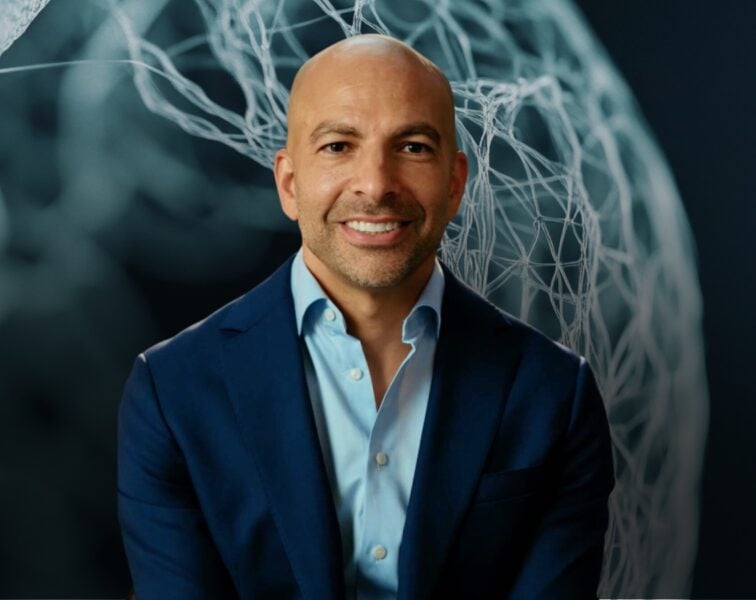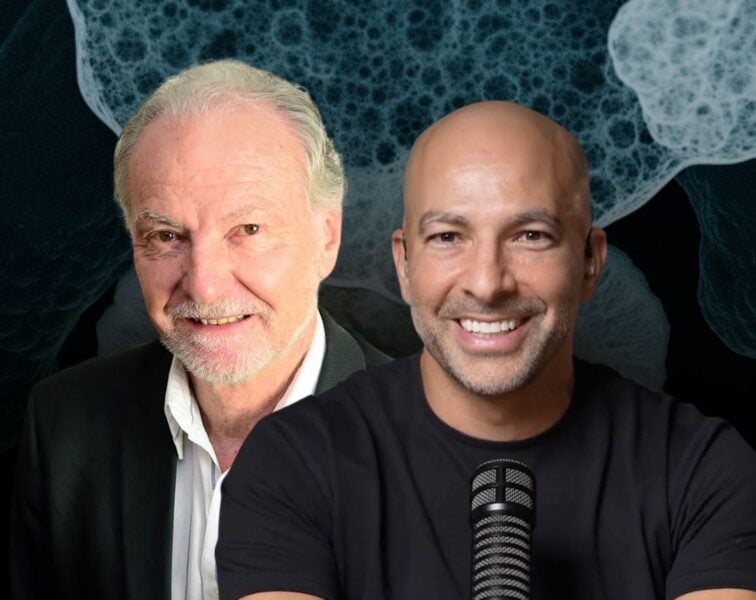Check out more content with Dom D’Agostino:
- (July 16, 2018) Dom D’Agostino, Ph.D.: ketosis, n=1, exogenous ketones, HBOT, seizures, and cancer
- (June 22, 2020) AMA with Dom D’Agostino, Ph.D., Part I of II: Ketogenic diet, exogenous ketones, and exercise
- (July 20, 2020) AMA with Dom D’Agostino, Ph.D., Part II of II: Ketosis for cancer and chronic disease, hyperbaric oxygen therapy, and the effect of ketosis on female health
In this episode, Dom D’Agostino, one of the smartest people on all things related to ketones, digs deep into the research and application of these molecules. We discuss ketone esters, diesters and monoesters, racemic ketones, medium-chain triglycerides (MCTs), C8 (caprylic acid) on the exogenous ketone (EK) side of things. We also cover a lot of Dom’s fascinating work with hyperbaric oxygen therapy (HBOT). If you’re just curious about ketosis and/or HBOT, or working on a dissertation related to nutritional biochemistry, there’s probably something in this episode for you to take away.
Subscribe on: APPLE PODCASTS | RSS | GOOGLE | OVERCAST | STITCHER
Dom also discusses the strategy and tactics of the metabolic management of cancer, which includes, but is certainly not limited to, a ketogenic diet (KD). Cancer is covered throughout this episode, but if there’s one section to listen to, skip ahead to the 2-hour mark and listen to what Dom has to say about the Press-Pulse approach.
We discuss:
- Dom’s early medical training in hyperbaric chambers [7:00];
- Effect of ketones on cancer cells [20:00];
- Ketones and oxygen toxicity seizures [32:00];
- HBOT & its many applications [40:00];
- Ketones, MCTs, and exogenous ketones [59:15];
- How ketones affect blood glucose [1:20:00];
- Ketone esters, salts, enantiomers vs. racemic BOHB [1:38:00];
- Dom’s ketone tolerance test [1:56:00];
- The metabolic management of cancer using a Press-Pulse approach [1:59:45]; and
- More.
Get Peter’s expertise in your inbox 100% free.
Sign up to receive An Introductory Guide to Longevity by Peter Attia, weekly longevity-focused articles, and new podcast announcements.
Would you like access to extensive show notes and references for this podcast (and more)?
Check out this post to see an example of what the substantial show notes look like. Become a member today to get access.

Dom D'Agostino, Ph.D.
Dominic D’Agostino, Ph.D., has maintained involvement in a vast array of professional, academic and personal endeavors. As an Associate Professor with tenure at the University of South Florida, Dom teaches students of the Morsani College of Medicine and the Department of Molecular Pharmacology and Physiology, with a focus on such topics as neuropharmacology, medical biochemistry, physiology, neuroscience, and neuropharmacology. He is also a Research Scientist at the Institute for Human and Machine Cognition (IHMC) to assist with their efforts towards optimizing the safety, health and resilience of the warfighter and astronaut.
His laboratory develops and tests metabolic-based strategies for targeting CNS oxygen toxicity (seizures), epilepsy, neurodegenerative diseases, and cancer. To investigate the mechanism of these pathologies he uses a variety of in vivo and in vitro techniques, including radio-telemetry (EEG, EMG), electrophysiology, fluorescence microscopy, confocal microscopy, atomic force microscopy (AFM), biochemical assays and in vivo bioluminescence imaging. His laboratory has adapted many of these techniques for use inside environmental chambers, which allows them to manipulate oxygen concentrations (from hypoxia to hyperbaric oxygen). His current project is to identify cellular mechanisms of seizures from CNS oxygen toxicity and to develop mitigation strategies against it. His efforts have focused specifically on measuring brain EEG, neuronal excitability, reactive oxygen species (ROS) production and biomarkers of oxidative stress. The main focus of his lab over the last 10 years has been understanding the anticonvulsant and neuroprotective mechanism of the ketogenic diet and ketone metabolite supplementation. The shift in brain metabolism (from glucose to ketones) reduces neuronal hyperexcitability, oxidative stress and enhances brain energy metabolism. This approach can be used to treat a wide variety of pathologies linked pathophysiologically to metabolic dysregulation, including cancer. Other areas of interest include researching drugs that target cancer-specific metabolic pathways. He was a research investigator and crew member on NASA’s Extreme Environment Mission Operation (NEEMO 22) and has a personal interest in environmental medicine and methods to enhance safety and physiological resilience in extreme environments. His research is supported by the Office of Naval Research (ONR), Department of Defense (DoD), private organizations and foundations.
With a wide range of research interests, Dominic D’Agostino holds membership in the Undersea and Hyperbaric Medicine Society, Aerospace Medical Association, Society of Neuroscience, American Physiological Society, and the American Association of Cancer Research, additionally serving on numerous editorial boards and as a Reviewer for dozens scholarly publications. Before joining the faculty at USF, D’Agostino completed a postdoctoral fellowship in neuroscience at Boonshoft School of Medicine at Wright State University. A graduate of Robert Wood Johnson Medical School and Rutgers University, Dominic D’Agostino earned his Ph.D. and B.S. from these respective institutions. [ketonutrition.org]
Dom on Facebook: Dominic D’Agostino
Dom on Instagram: @dominic.dagostino.1
Dom on Twitter: @dominicdagosti2
Dom’s website: ketonutrition.org
Dom’s blog: ketonutrition.org/blog/



